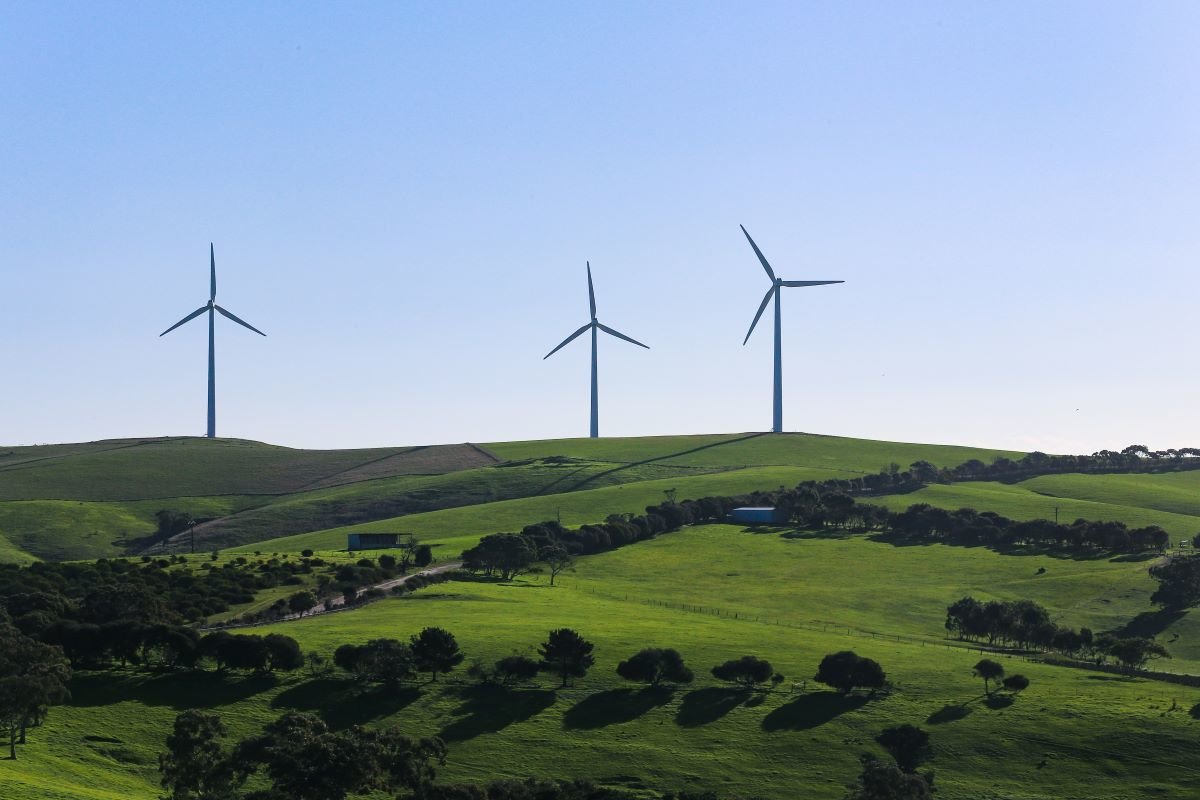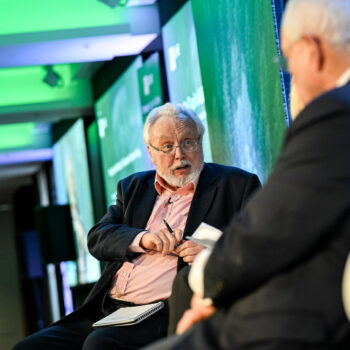The following remarks were made by Mr Tom Burke CBE at the UKELA Annual Conference 2021, by Zoom, June 17th 2021.
To hear more from Tom Burke and others on law and the environment, watch a recording of E3G’s event: Rule of Law and Climate Change, which was broadcast on 30th June 2021 as part of London Climate Action Week.
Thank you for inviting me to speak to you again. It is always an honour to be invited to speak to this Conference, but one I always accept with some trepidation.
As a non-lawyer I usually suffer from imposter syndrome when thinking about what I could say that would be new, interesting and relevant to an audience of experienced legal professionals.
I normally soothe this anxiety with the thought that I am really here to talk about the environment. This is a topic I do know a lot about and which is changing so fast there is always something new to be said.
But my anxiety has been rather deeper this year. First, because it is only a year since I last addressed this Conference. This raises considerably the risk of exceeding your tolerance for environmentalists banging on about the state of the planet as if no-one else knew or cared.
But second, and more importantly, because I do want to talk about the law as well as the environment. More specifically, I want to develop further the theme I addressed last year.
Then I suggested to you that there was a deeper alignment of interests between the environmental community and the legal community than had yet found noticeable expression.
I made this point having surveyed the declining observance of environmental law in this country and noted that this had occurred at the same time as there was a declining political commitment to the rule of law in general.
I recalled my shock at what I heard at a Bencher’s Dinner at Gray’s Inn to which Richard Macrory had invited me. It had never previously crossed my mind that the rule of law itself was being undermined.
Of course, I knew that there were bad laws and absent laws and that not all our laws were being properly enforced. But these had always seemed to me to be correctable errors.
What I heard at the dinner was a group of distinguished lawyers discussing a deeper and more systemic problem with the law that they all seemed to take for granted and think very seriously.
The primary cause of this gloomy conversation seemed to be neglect. Politicians, it seemed, did not understand the importance of providing adequate resources to the legal system for it to function effectively and retain public confidence.
Somewhat later, as I witnessed the legal furores surrounding Brexit, it became clear to me that there was also an element of political malice being directed at the law.
There is a growing cohort of politicians in this, and other governments, for whom the law is increasingly seen as an inconvenient obstacle to the pursuit of their goals.
It is hard to imagine a clearer example of this malign phenomenon than the avalanche of criticism that accompanied the ruling of the Supreme Court that the Prime Minister’s attempt to prorogue Parliament was unlawful.
It might have been tempting to put this outburst of media magnified bile down to ignorance were it not that many of the loudest political voices in this tirade were themselves lawyers who could not have misunderstood the clarity of Lady Hale’s judgement.
My closing point last year was that both the legal and environmental professions were punching well below their weight politically. I suggested that there needed to be a conversation between the two communities about what must be done to ‘ensure that the rule of law should not perish from an excess of indifference’.
The implied reference to the Gettysburg Address is intentional.
This year I want to develop that theme further.
I would like to start however with a reflection on the nature of the two communities: legal and environmental.
This is not the result of some sociological research, simply of observations from my direct experience of nearly fifty years of working closely with both communities.
The daily urgencies of tackling pressing legal or environmental problems are both intellectually and emotionally challenging. The flow of demands both to do more and to know more is unrelenting. The number and complexity of the issues that must be addressed is often growing faster than the personal resources available to address them.
This pressure induces an institutional hermeticism – a structural blindness if you like – to the wider context in which the problems of the day emerge and require a solution.
I find myself frequently saying to my colleagues in E3G that we need to sound less like we care only about what we care about and more like we care about the things most people care about.
Lawyers are notoriously renowned for only being comprehensible to other lawyers.
There is a propensity within any group of engaged professionals to be blind to things that to other professions seem glaringly obvious. It may have been obvious to the lawyers I met over dinner that the rule of law was under threat but it was certainly not obvious to me.
My colleagues in E3G are constantly baffled by the apparent inability of a very wide range of sophisticated, successful and thoughtful professionals to grasp just how disruptive climate policy failure will be to everything they take for granted.
I am going to focus my remarks today on climate change because of its immediacy and urgency.
But concealed behind those darkening climate change clouds is a range of other prosperity and security threatening global environmental problems.
Ocean acidification and biodiversity loss come immediately to mind but there is no shortage of others to add to the list from zoonotic pathogens to the disruption of the nitrogen cycle.
Mark Carney, as Governor of the Bank of England, said, just before Paris in 2015, that climate change is an existential threat to macro-economic stability.
He might also have said, as an increasing number of climate scientists are saying, that it is an existential threat to civilisation.
And, he might have said, as I will argue later, that it is an existential threat to the rule of law.
Let me put the importance of Mark Carney’s remark into its political context. When President Clinton was asked what he would do if he could have his term in office again, he said he would come back as the bond market – suggesting that he thought the capital market had more power than he had had as President.
We are now in the somewhat unusual position of the global capital markets taking climate change more seriously and acting more strategically than most governments.
We are now living in a world in which the world’s central bankers are rewriting the rules by which capital is allocated.
There could be few better examples of the disruptive power of climate change.
We know exactly what we need to do to have a good chance of keeping the climate safe. We must stop burning fossil fuels by the middle of the century.
We know we can do that without depriving anyone of the energy they need.
We already have the technologies we need for this and there are many more zero carbon energy technologies on their way.
We also know that we can afford to make the energy transition. About seventy per cent of all the fossil fuel we burn ends up as waste heat – doing nothing for the economy.
I do not want to suggest that this will easy – that somehow there is a problem-free path to a net zero economy.
However, the really difficult barriers to keeping the climate safe will not be the technology or the cost. They will be the politics of bringing about a change of the magnitude, and at a speed, unprecedented in history.
All change benefits some people and disadvantages others. Change on the scale and pace we need to keep the climate safe will transform an immense number of lives.
Understandably, those whose lives will benefit will welcome the changes and those who will be disadvantaged will resist.
The biggest political barrier to keeping the climate safe will be a failure to guarantee a secure place in the green, fossil free world we are already building for those who have spent their lives providing us with the energy we needed from fossil fuels.
We cannot, and should not, build a fossil free future by creating another generation of the left behind.
This means that the energy transition must be accompanied by a social transition as systematically thought through and adequately resourced as the technology transition.
Ensuring that this happens is the responsibility of governments, not markets.
We are already getting glimpses of what a world in which climate policy fails might look like. It will not be good for politicians, especially not democratic politicians.
We can now see, all too often, how increasingly frequent fires, floods, droughts and storms disrupt the lives of tens of millions. As temperatures continue to rise so will the frequency of these disruptions.
As we have seen with the pandemic, disruption is unfair. It damages the poor more than the wealthy. This is as true within rich countries as it is between developed and developing countries.
As climate change accelerates, the stress on societies everywhere will increase. Disruption will become commonplace. Social cohesion will be undermined and countries become ever less stable.
Without climate security, maintaining food, water and energy security becomes progressively more difficult, eventually impossible.
Without food, water and energy security, as we see in a growing number of failing states, political stability becomes impossible.
Neither democracy nor the rule of law will survive the chaos that will accompany climate policy failure.
I am a democrat by conviction. I believe it is not only the right way to govern the state but it is also the best way. As Winston Churchill famously said, ‘democracy is the worst form of government except for all the others we have tried’.
Looking around the world it is clear that there is a growing loss of confidence in democracy. Even among those concerned about climate change, there are siren voices beginning to murmur that time is too short. The need for action too urgent.
Perhaps democracy is getting in the way.
They are wrong. Let me explain why they are particularly wrong with respect to climate change.
Despots, to hold on to power, must destroy all the machinery that societies have developed to learn from their mistakes.
And independent judiciary charged with preserving the rule of law.
A vibrant civil society with the right to organise and protest.
Full academic and press freedom.
A politically independent civil service.
Un-politicised public services, especially the police, military and other security services.
The reason we need democracy and the machinery that makes it possible is simply that there is no mistake-free pathway to climate policy success.
So when we make mistakes, as we surely will, we have to be able to correct them quickly. That means that we must strengthen the societal machinery on which democracy depends not weaken it.
And we must do so in the face of those who are setting out to just that, even here in Europe.
Climate policy success depends on our ability to maintain the integrity of two triangles that provide the stability for sustained effort on the necessary scale.
Globally, a triangle formed by the EU, the US and China provides the foundation of the global regime for tackling climate change. As long as they remain in some alignment there is a core around which the geopolitics of climate change can be negotiated.
This geopolitical triangle is underpinned nationally by another stabilising triangle the interdependent elements of which are democracy, the rule of law and social cohesion.
Without democracy you cannot learn from your mistakes; without the rule of law, you cannot have democracy, as we were all reminded in January, and without social cohesion the rule of law is rapidly eroded.
This is, of course, an idealisation. I am not offering it as a counsel of perfection. The world we actually live in is, as Churchill well understood, an altogether messier place.
Nevertheless, the more we clearly understand what is actually required for climate policy success, and why, the more we can bend our efforts to get the best available approximation to those conditions.
I have set this idealisation out here simply to locate the central importance of the maintenance of the rule of law in our effort to tackle climate change.
Without it much of the vast potential to solve the problems of climate change, or indeed any of the other great global environmental problems, that is now being made available to us by scientists, engineers and a legion of other professions will remain unused.
It is not hard to see what the rule of law has done for the environment.
Since the Second World War, the previously lawless frontier of the global environment has been brought increasingly, if episodically, under the rule of law.
I often think of my life’s work as being that of a kind of green lawman working along that lawless frontier.
We really do breathe better air, waters are cleaner, grossly toxic substances better controlled, species and places better protected – often in the teeth of fierce opposition from economic interests.
As our knowledge of the damage done to the environment by human activities has grown, so too has the scope of environmental law – and of course, the number of environmental lawyers.
The courts have increasingly become the places where battles over the environment end up. Last year, over 1500 legal actions on climate change had been launched in nearly 40 countries – almost double the number running in 2017.
The question that is not so easy to answer is what has the environment done for the rule of law.
While my colleagues in the environmental community are increasingly eager to take advantage of the opportunities the rule of law provides to advance their green goals, they are for the most part as unaware of the growing threat to the rule of law as I was before Richard Macrory invited me to dinner.
One of the anthems of 20th Century environmentalism was the Joni Mitchell song ‘Big Yellow Taxi’ which contains the lament ‘you don’t know what you’ve got ‘til it’s gone’.
There are 28,000 environmental and conservation charities in Britain – about 15% of the overall total. Their combined membership is close to 5 million, more than five times the combined membership of all the political parties in Britain.
Their leaders are far better placed than any of our politicians or newspaper editors to understand the will of the people.
This is a vast army of people who do not know what they have got with the rule of law. Or that it is being taken away from them by a lethal political cocktail of ignorance, neglect and malice.
It seems to me that the rule of law will not long survive a failure to maintain the ecological foundations of the economy, of which the climate is the foundation in the most imminent danger.
It seems to be equally true that the ecological foundations of the economy cannot be strengthened and preserved if the emerging assault on the rule of law long continues.
This is why I am repeating the call I made here last year for a more strategic conversation between the legal and environmental communities to better concert their roles in the defence of a common interest.
Both communities are deeply engaged in the daily battles to deliver justice and a safe environment. There is a danger with all warrior communities that the imperative to win battles distracts effort and attention from the need to win the war.
The environment needs to do more for the rule of law, but it will need the help of lawyers to be able to understand and act on that need. This is why we need that more strategic conversation I called for last year.


